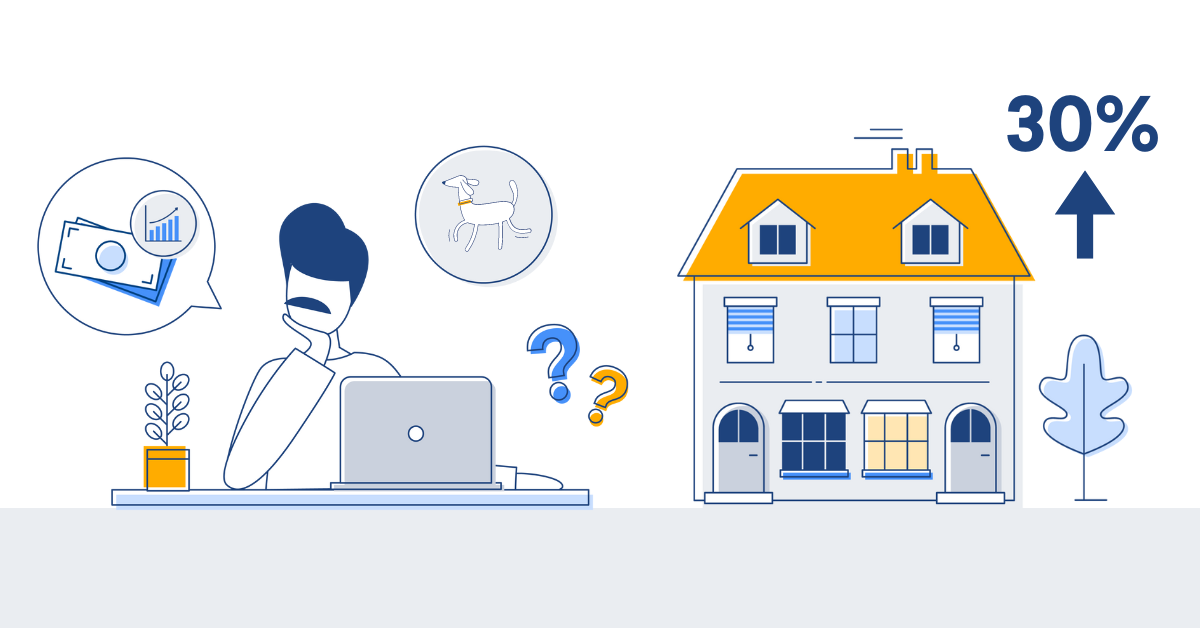Over the last 4 years, average tenancy lengths have become significantly longer, nearly a third longer according to the Deposit Protection Service. The average tenancy now lasts 924 days - or just over 2 and a half years - compared to just 706 days, or 2 years, in 2020. Several factors contribute to this trend, including rising costs, availability of quality homes, more renters having pets or children, and the high upfront costs to move.
Rising costs
The escalating cost of living crisis has resulted in tenants hunkering down and staying in their current properties longer. With increasing prices on essentials, tenants are adopting more financially conservative behaviours, avoiding further costs or large expenses such as moving homes.
Additionally, salaries have not kept pace with rising costs, putting additional financial strain on tenants - and the UK as a whole - so many are feeling the pinch more and more. Figures from Statista and the ONS reveal that annual real wage growth in the UK has not matched the annual growth in rents over the last three years. And in 2024, wage growth was 5.2% lower than the rise in rent prices.
Availability of quality homes
High interest rates and affordability issues have deterred many tenants from transitioning from rental properties to homeownership. As fewer tenants move into their own homes, the rental market welcomes a new generation of tenants - causing an overcrowded market with more tenants than years previous.
As tenants are staying put for longer - specifically in higher quality rental homes - the supply available diminishes. Tenants who find themselves in good quality rental homes are even further deterred from looking for another property - as many are increasingly becoming aware of the struggles of finding a new home. In fact, Rightmove report an average of 25 enquiries per available rental property.
Pets and children
The pandemic prompted many tenants to finally take the plunge and get the pet they’ve always wanted. According to Confused.com, 33% of tenants now have pets. Additionally, it is becoming increasingly common for families with children to rent. One in ten tenants now have children and this number is expected to continue rising. Tenants with pets or children are much more likely to stay in properties for longer due to lack of properties that meet their specific needs, allow pets, or to minimise disruption to their families.
High upfront costs to move
The expenses associated with moving home, such as funding a new 5 week deposit, paying the first month’s rent, moving vans, and new furniture, can be daunting and off putting. These high upfront costs deter a lot of tenants from seeking a new rental property and making them much more likely to remain in their current home.
Interested in learning more about deposit alternative products and how flatfair could help your business? Book a no obligation call today.










